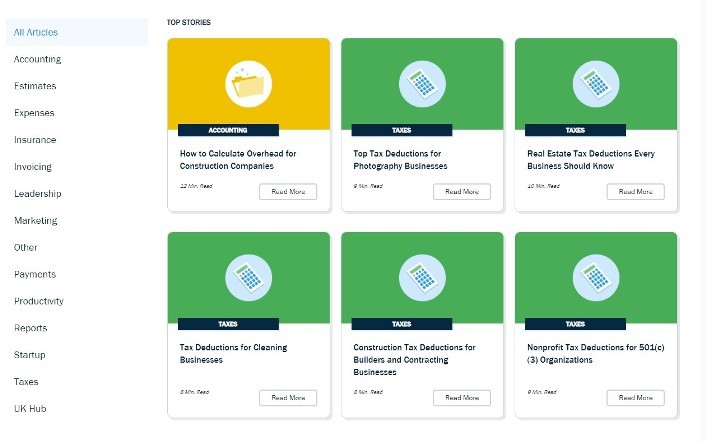Google uses a complex algorithm made up of hundreds of ranking factors to serve its users the best possible search results. This algorithm analyses each piece of content in Google’s index of pages from across the Internet to return the most relevant set of results for every search.
Over the years, Google has continuously improved its algorithm to ensure it provides the highest quality results to searchers. These improvements come in the form of algorithm updates, which signal a major change to the factors that help Google’s algorithm decide what the best results are for each specific search.
If your business relies on attracting customers from Google, it pays to check the SEO blogs religiously for mummerings of an algorithm update.
Or does it?
Read on to find out why there might be more important digital marketing trends to keep track of if you want to dominate the Google search results in your sector in 2021.
How Often Does Google Update Its Search Algorithm?
In its early days, Google only made a handful of changes to its search algorithm. There are just six Google algorithm updates listed in Search Engine Journal’s History of Google Algorithm Updates between 2003-2010—the same amount as in 2019 alone.
Today, Google does things a little differently. In its How Search Works guide, the search giant explains: ‘In 2019, we ran over 464,065 experiments... resulting in more than 3,620 improvements to Search.’ So while some algorithm updates have a bigger impact than others—with only a handful, like the May 2020 Core Update, making waves across the SEO community—the fact is that these days Google’s set of ranking factors is in constant flux.
When Should You Worry About an Algorithm Update?
So if Google tinkers with its algorithm several times a day, when should you worry about an algorithm update?
Firstly, keep a close eye on the Search news on Google’s official blog. This is where you’ll get updates about major algorithm changes, such as BERT, straight from the horse's mouth. If Google publishes a product update about an algorithm change then you should definitely sit up and pay attention.
What you should do when Google announces an algorithm update
When Google shared its Search Quality Rating Guidelines to the Google Webmasters blog, the world beyond Google HQ was introduced to E-A-T—a ranking factor that dramatically affects what Google calls Your Money or Your Life (YMYL) pages. This update had a huge impact on sites that operate in industries related to your health or finances.
For example, a business like BrokerEngine—a mortgage broker software provider—would have been wiped off the first page of Google if it didn’t react to this update by displaying its expertise, authoritativeness, and trustworthiness through key pages on its site. The firm has made sure its ticking all the E-A-T boxes, with dedicated Reviews and About pages alongside a Contact page and a phone number in the header of the site:

If they hadn’t been aware of the E-A-T update, BrokerEngine might not have known how crucial it was for a business in its sector to include these features on its site.
When you should listen to the SEO blogs
It’s also worth noting that often an algorithm update will get picked up by the SEO community long before it's confirmed on the Google blog. It’s therefore well worth keeping an eye on SEO news sites like Search Engine Journal and Search Engine Land if your business depends on succeeding in search.
When the SEO community is making noises about an algorithm update—or Google’s blog confirms it—you should head to your go-to SEO tools and analyze whether there’s been a change in your site’s search performance. If there has, take a deep dive into what the experts and, more importantly, Google itself are saying about the changes, and adjust your strategy accordingly.
But beyond that, don’t sweat the latest algorithm update.
What Should You Focus on Instead of Algorithm Updates?
Google’s aim will always be to return the best possible results for every search. Its business model depends on people having a great experience and coming back again—and that’s when they’ll be served more ads, which is still how Google makes most of its money.
Ultimately, Google’s intention with every algorithm update is to help ensure the most relevant, highest quality content from the most trustworthy and authoritative sources makes it to the top of its search results. So the best use of your time as a business owner is to make certain that your site is both as useful to your target audience and as authoritative in the eyes of Google as possible. This will future-proof your business from tomorrow’s algorithm updates, as it will put you in the ideal position to benefit from Google continuing to refine its ability to serve the highest quality content to its users.
Here’s how:
Create compelling content
First, you should spend your time creating powerful content that generates lots of traffic (a surefire sign that your site is a quality source of information). If you’re not sure what that might look like, take a look at FreshBooks’ Small Business Resource hub—the best-in-class example of a business serving its target audience with quality content that answers their most pressing questions.

A word of warning: as you set about producing search-optimized content for your site, don’t get swept up in creating as much content as possible while letting quality slip. Growth marketer Nadya Khoja has actually created a formula for measuring how engaging your content is that you can use to quickly analyze whether your content is top-class or needs some work.
Earn relevant backlinks
Another Google ranking factor that isn’t going anywhere any time soon is how important backlinks are from authoritative sites from around the web. Certainly, not all backlinks are created equal—make sure you understand how link relevance plays into the picture before you begin any link building campaign.
Summary
Of course, keeping track of Google’s algorithm updates is crucial to your site’s SEO success. But should you do more than keep an eye on Google’s blog and the SEO news sites for updates? We wouldn’t recommend it.
Instead, invest in your site’s success by spending your time and energy making it as useful to your target audience as possible—produce engaging content that receives a healthy amount of traffic and backlinks. And keep up-to-date with the latest marketing insights on the FlippingBook blog.
Author's bio:
Adam Steele is the Founder and COO at Loganix, an SEO fulfillment partner for agencies and marketers. We build easy to use SEO services that help businesses scale. If you liked this article, please check out our SEO guides and templates on the blog





